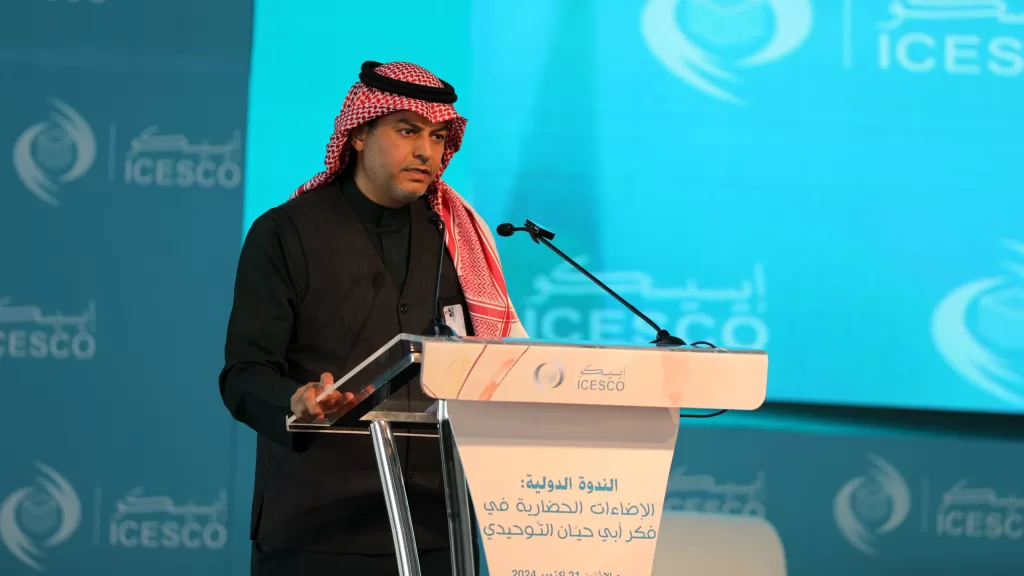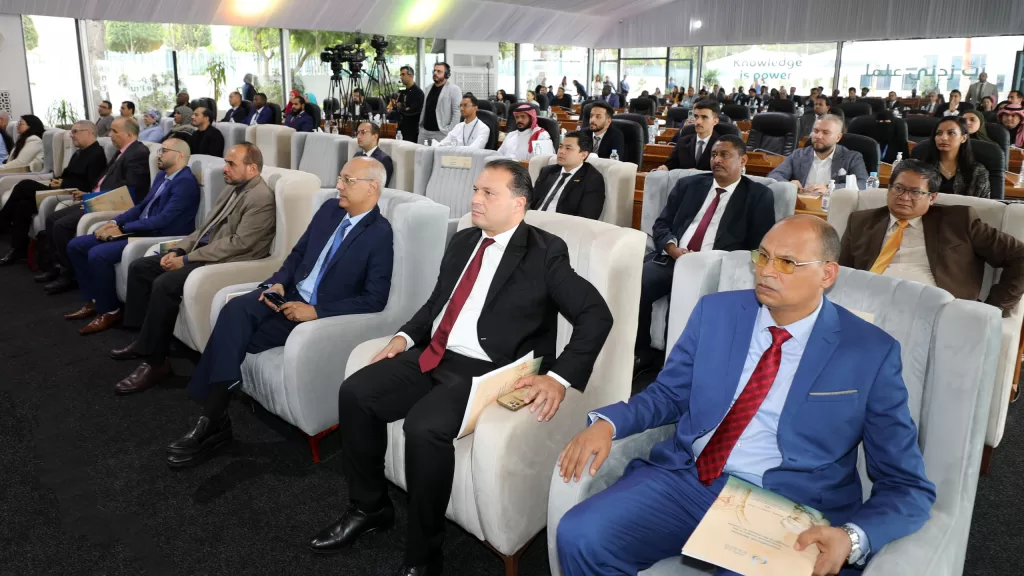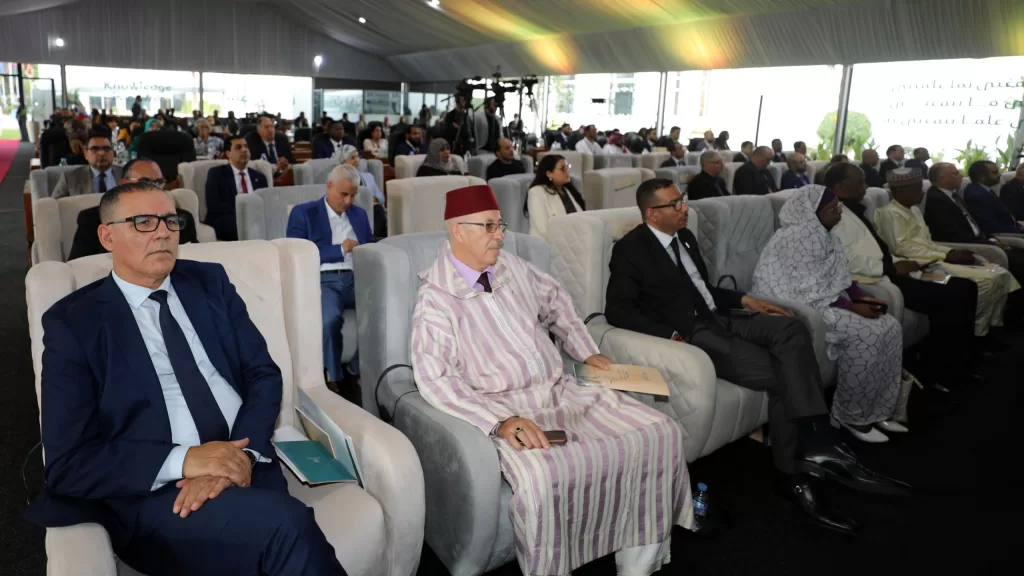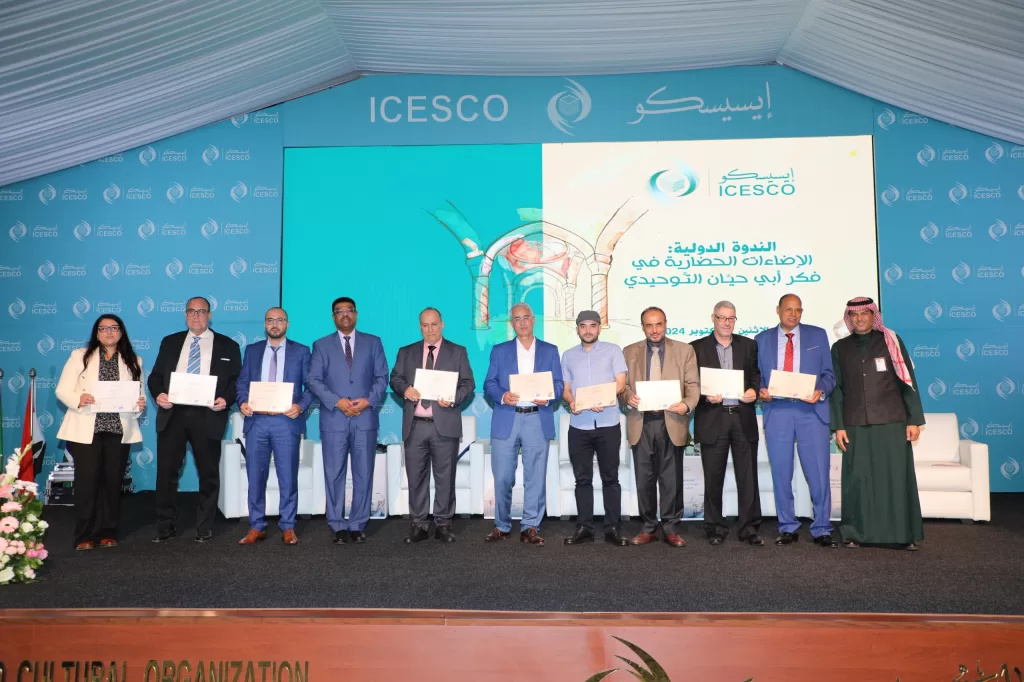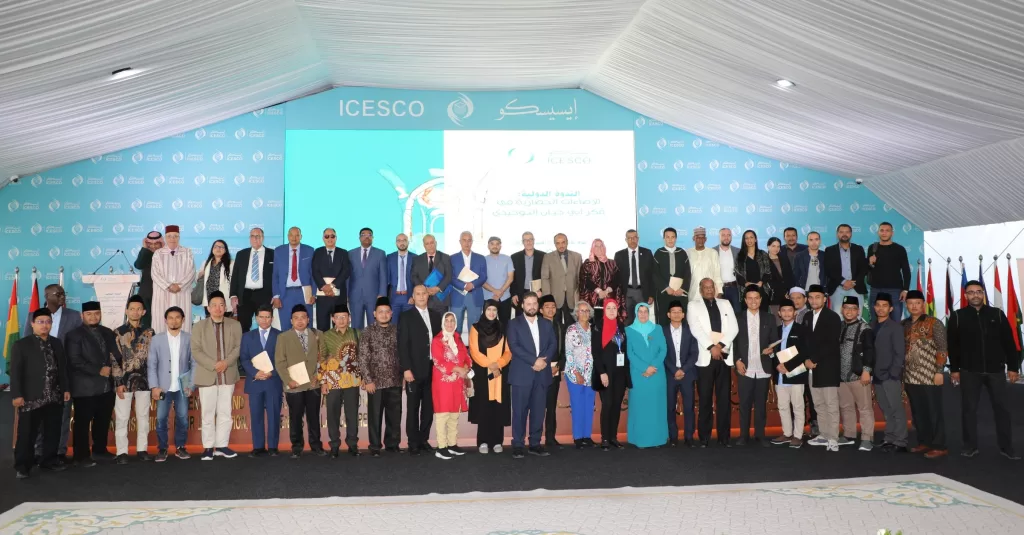
Seminar at ICESCO Calls for Revisiting Civilizational Dimensions in Thought of Abu Hayyan al-Tawhidi

22 October 2024
The participants of the International Seminar: “Civilizational Insights in the Thought of Abu Hayyan al-Tawhidi”, organized by the Islamic World Organization for Education, Science and Culture (ICESCO), commended the choice of this theme to highlight the rich legacy of this great writer and philosopher and his advocacy of the values of dialogue, debate and tolerance, and emphasized the importance of revisiting the civilizational dimensions in Al-Tawhidi’s thought. As several of his works provide a theoretical framework for dialogue between individuals, communities and cultures, his thought can be instrumental today in addressing the root causes of cultural conflict.
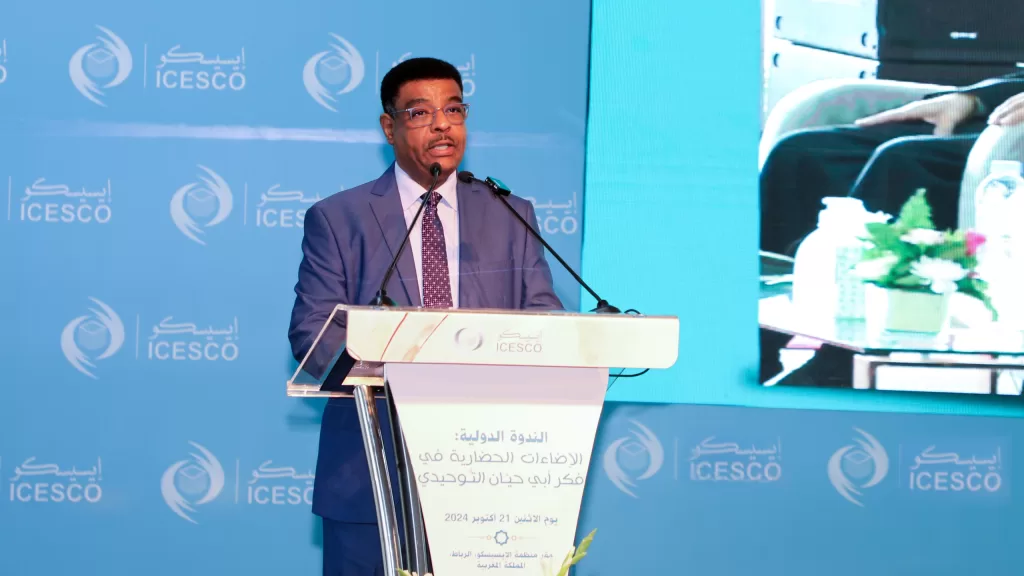
The seminar, which was held at the ICESCO headquarters in Rabat and was attended by high-level participants, began on Monday, October 21, 2024, with some verses from the Holy Quran. Then Ambassador Khalid Fathalrahman, Director of the ICESCO Center for Civilizational Dialogue, gave a general introduction in which he presented the most remarkable philosophical and critical features of the thought of Abu Hayyan al-Tawhidi and his famous works.
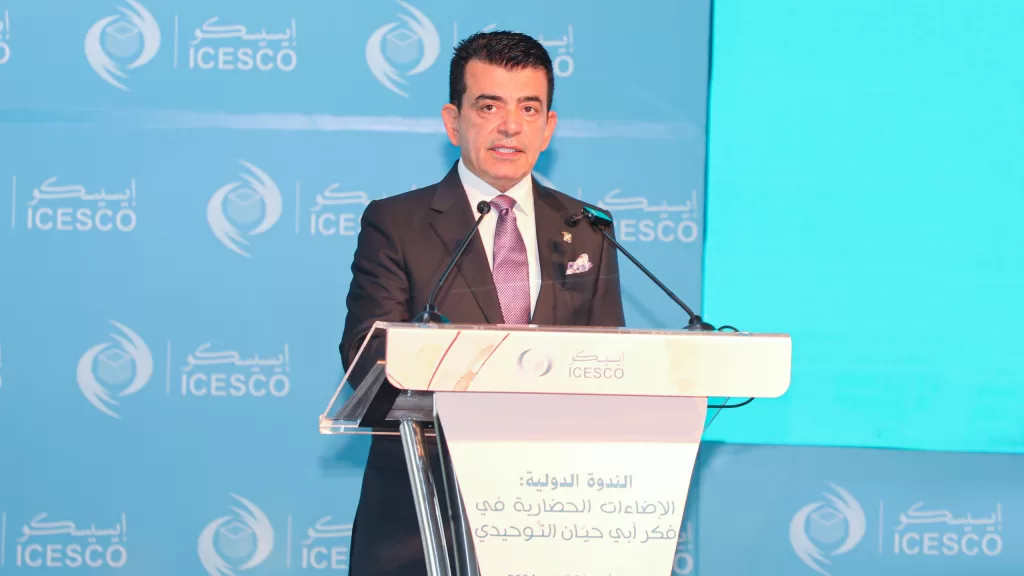
In his opening speech, Dr. Salim M. Al-Malik, ICESCO Director-General (DG), affirmed that the celebration by every nation of its great scholars is an obligation dictated by a sense of loyalty, responsibility, and pride, pointing out that Abu Hayyan al-Tawhidi deserves this tribute and recognition for what he has done in restoring the thought of nations and civilizations, a thing that has earned him to be at the forefront of those who call for upholding multiculturalism, which confirms the pioneering call of Islamic thought for the rejection of bigotry and racism.
He then reviewed the most prominent thoughts and sayings of Abu Hayyan al-Tawhidi, who founded wise convictions based on his belief that man is the problem and the solution at the same time. Dr. AlMalik also pointed out that al-Tawhidi called for the avoidance of comparing nations in incomparable things and established the concept of adapting to the environment, drawing attention to the need to make renewal a vital method.
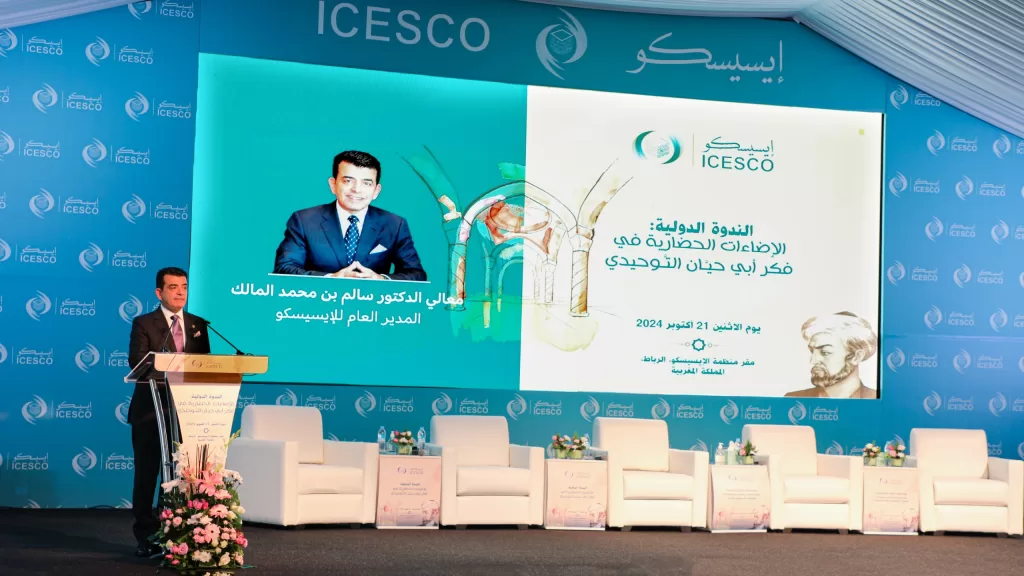
Praising al-Tawhidi’s book “Enjoyment and Sociability” for its emphasis on human partnership in building civilization and for being a reference for all advocates of dialogue among cultures and civilizations, ICESCO Director General concluded his speech by saying that the Organization’s celebration of al-Tawhidi is part of its commitment to linking the past with the future in such a way as to avoid fanatical attachment to the past and embracing the future to the detriment of inherited foundations and legacies.

The first session of the seminar, moderated by Dr. Saber Moulay Ahmed, a Moroccan writer and researcher, featured rich working papers and discussions by a number of researchers from Morocco, Saudi Arabia, Turkey, and Italy. The papers all agreed that al-Tawhidi was at the forefront of touching on the relationship with the other, excelled in mixing philosophy and literature, and was a pioneer of modernity. His thought also contributed to understanding the deeper meanings of human differences.

The second session, moderated by Dr. Mohammed Al-Masaoudi, professor at the Faculty of Humanities of the Mohammed V University in Rabat, featured presentations by a number of researchers and academics on the dialogue of civilizations in al-Tawhidi’s thought and the humanistic tendency in his Sufism, as highlighted in his art of debate and his encyclopedic thought, which showed the central place of humanism in his thought, as he focused on the spiritual dimension of the human being in his book “The Divine Signs”.
